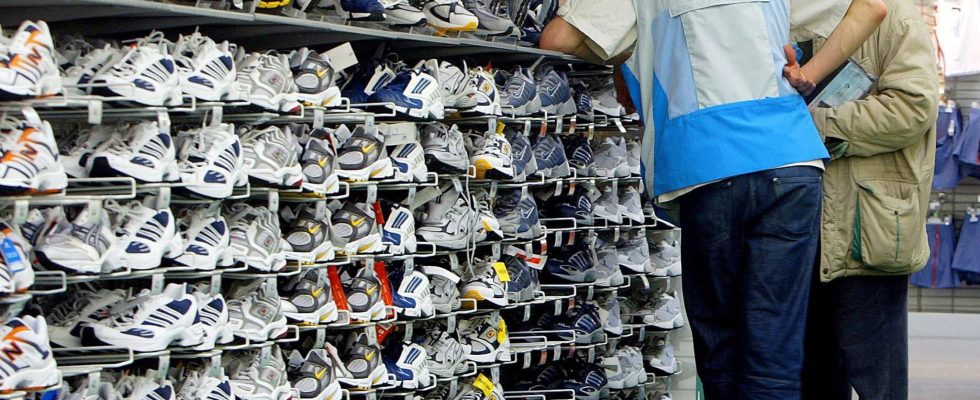Champion of innovation, model company, favorite brand of the French… The world leader in the distribution of sporting goods Decathlon is a hit and doesn’t intend to stop there. In its sights, the giants Nike and Adidas. L’Express explores this exemplary success from all angles in a series of articles.
Few companies can pride themselves on talking to everyone and managing to maintain a positive image. Decathlon is part of this very exclusive club. For L’Express, the essayist Raphaël Llorca, author of National novel of brands, immersed himself in the “decathlonian” galaxy to understand its mechanisms. Drawing on the counter-example of Nike, he shows how the brand has managed to interfere in the daily lives of the French, while maintaining a complicated relationship with politics.
L’Express: What is the characteristic of a great brand?
Raphael Llorca : Big brands not only structure our consumer worlds, but more broadly our collective imaginations. The characteristic of a great brand is to succeed in shaping a universe of meaning which orders our perception of the major categories of values which structure a given society. There is a before and after Tinder in the way of designing romantic relationships, just as there is a before and after Ikea in the way of designing your home.
How can we explain that Decathlon is systematically one of the French’s favorite companies?
Founded in 1976, Decathlon arrived in the daily lives of the French at a particular moment when, at the same time, we were designing major projects which still structure our country today (nuclear, TGV), but where, at the same time, the first faults of the Thirty Glorious Years were felt (the oil crises). Above all, it is not entirely a coincidence that the creation of Decathlon shortly followed the Mazeaud law (1975), which made physical and sports education compulsory in schools. In a certain way, Decathlon has come to materialize this French aspiration for the right to sport for all.
What differentiates Decathlon from its American alter ego, Nike?
It seems to me that there is something about Decathlon that resonates very strongly in our national imagination. Basically, this brand develops the idea of a French sport. A sport where we do not systematically worship the winners, and which pays particular attention to the losers, especially if they are magnificent – this is the eternal Poulidor syndrome. Decathlon clearly defends the idea of a sport-value based on solidarity and passion. As proof, I want this absolutely brilliant idea of structuring their products into “passion brands”: Quechua for the mountains, Tribord for water sports, Artengo for tennis, etc.
At the same period, Nike was built on a rigorously opposite system of values, sticking as closely as possible to the American ideal: sport-performance in the service of the individual and their emancipation. At the time, its founder, Philip Knight, spotted that there was a cultural disruption to exploit: the practice of jogging, on which a very unique sporting ideology is based, the “combative solo willpower” [NDLR : une volonté de performance, individuelle]. This is all that Nike continues to convey today.
Is Decathlon a political brand?
I would say that it is a brand which has a contradictory political relationship. On the other hand, Decathlon has rare political capital: in a society that is often described as “archipelago”, it has overwhelming popularity (80%) among all categories of the population. As early as 2000, an Ifop study showed that 60% of French households had visited Decathlon during the previous twelve months: what other institution can boast such attendance rates?
On the other hand, Decathlon seems to have fallen into all the political traps of the period. In 2019, they stumbled on the question of the hijab: challenged by a large part of the French political class on the hypothesis of a commercialization of the sports hijab, the brand revealed a disastrous crisis communication, varying its argument, proving that she had not worked on her vision of French society in advance. In 2022, the brand was accused of wanting to maintain its activities in Russia in the aftermath of the invasion in Ukraine and providing, here again, vague responses, frankly not up to the events. In both cases, we have the feeling that the brand has not become aware of the weight it exercises in French public opinion.
.
